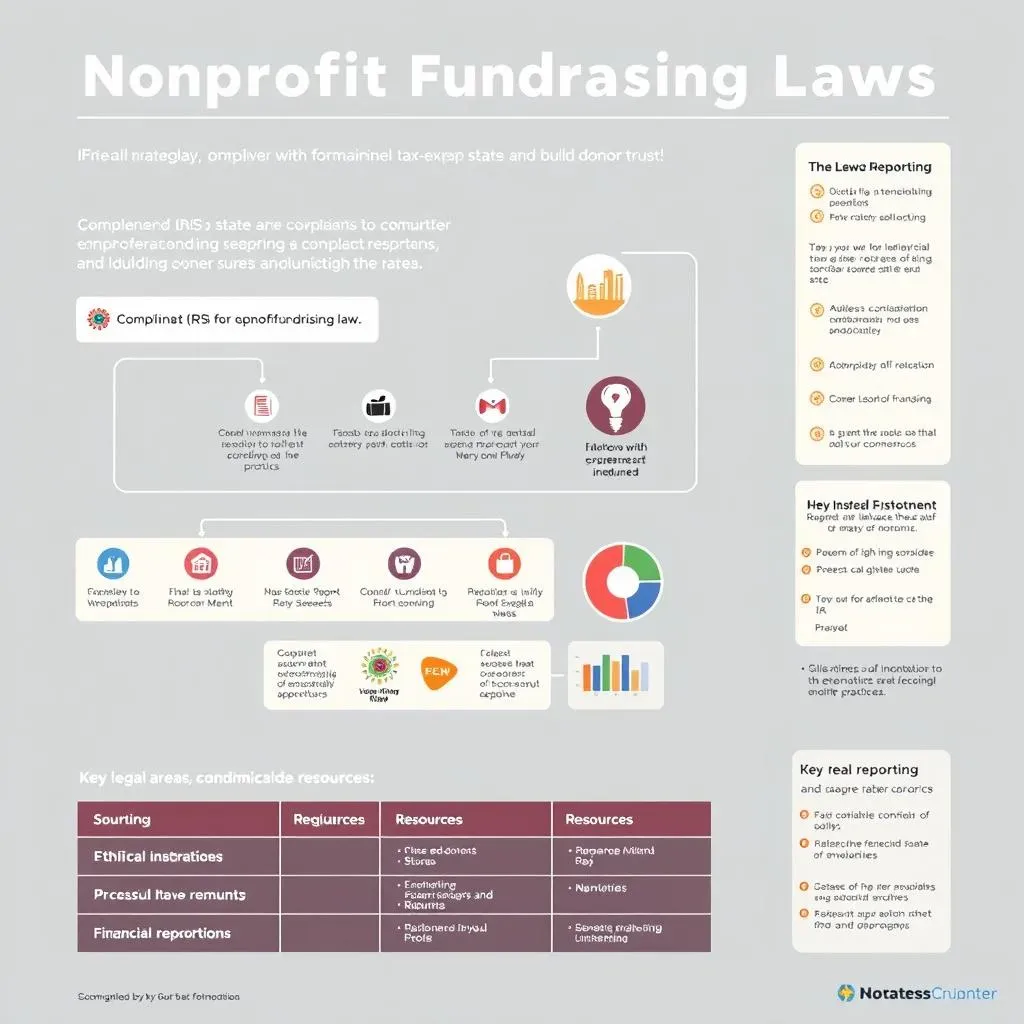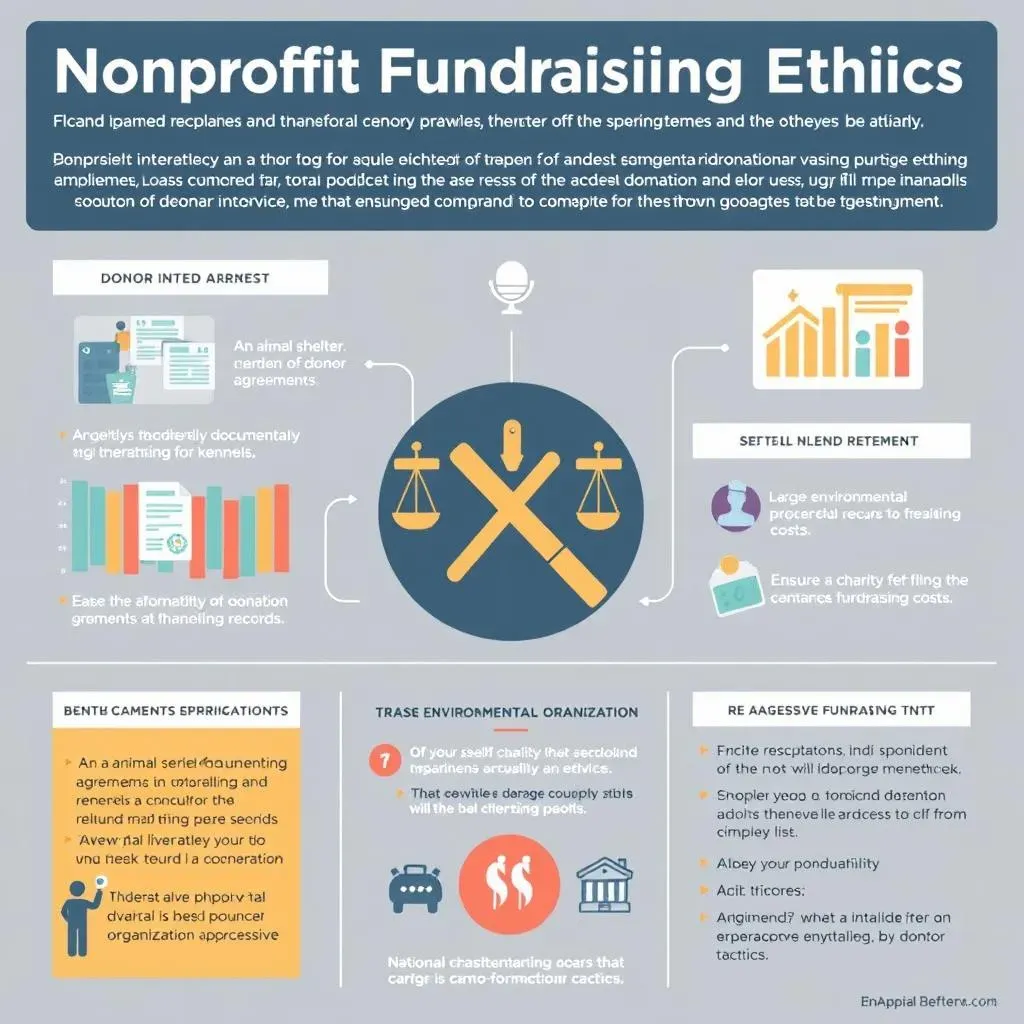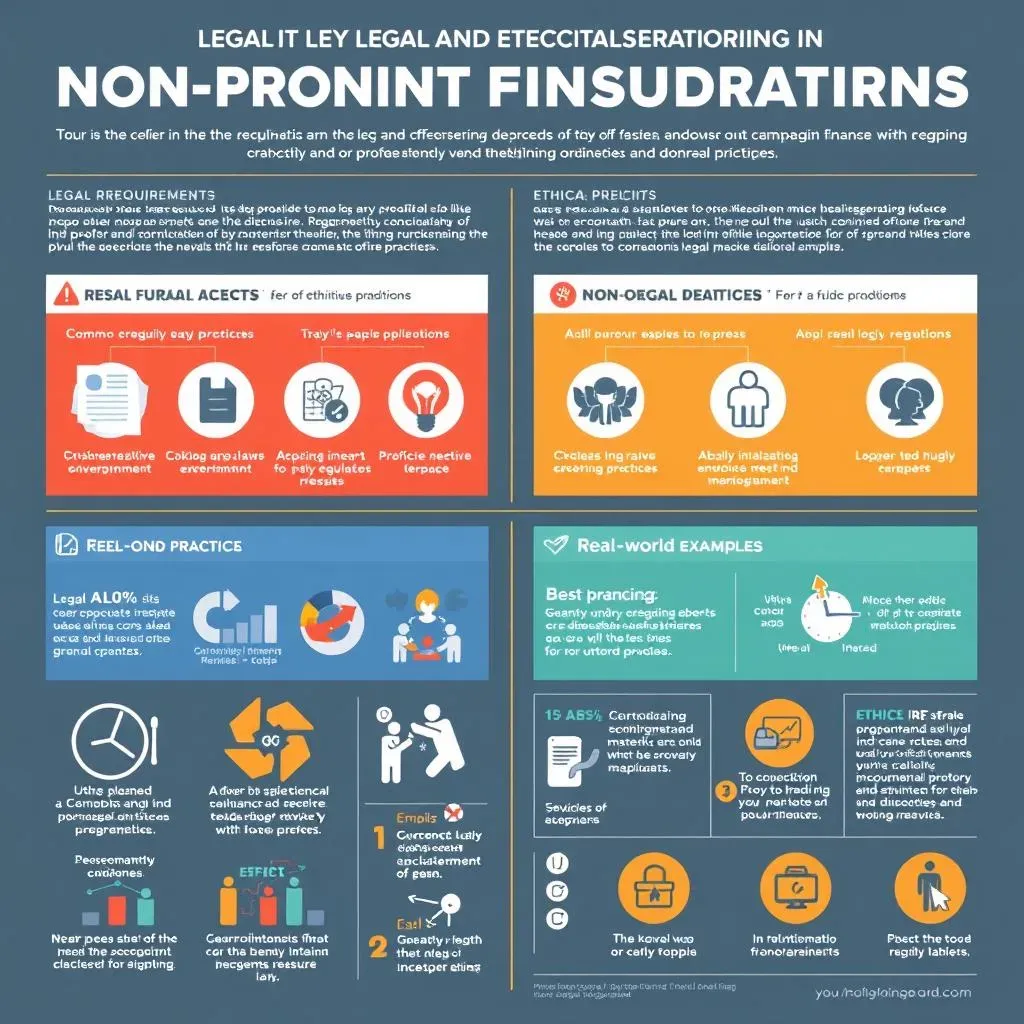Table of Contents
Fundraising is the lifeblood of any non-profit organization, fueling vital programs and services that benefit communities worldwide. But navigating the world of non-profit fundraising requires a keen understanding of both the legal landscape and ethical considerations. This article serves as your comprehensive guide to mastering the intricacies of non-profit fundraising laws and ethics. We'll unravel the essential legal requirements that govern how non-profits solicit and manage donations, ensuring you stay on the right side of the law. Beyond legal compliance, we'll explore the ethical dimensions of fundraising, emphasizing transparency, accountability, and donor respect. We'll delve into real-world examples and case studies, illustrating best practices and highlighting potential pitfalls to avoid. By the end, you'll be equipped with the knowledge and understanding needed to conduct ethical and legally sound fundraising campaigns, building trust with donors and maximizing your organization's impact. Prepare to transform your fundraising approach, ensuring both legal compliance and ethical integrity. Let's embark on this journey together, exploring the crucial intersection of non-profit fundraising laws and ethics.
Understanding Nonprofit Fundraising Laws

Understanding Nonprofit Fundraising Laws
So, you're diving into the world of nonprofit fundraising laws? Welcome! It's a fascinating, albeit sometimes complex, area. First things first: federal and state laws heavily influence how nonprofits can solicit donations. The IRS plays a big role, defining what constitutes a tax-exempt organization and outlining rules for maintaining that status. For example, they scrutinize how funds are used, ensuring they align with the organization's stated mission. This means you need crystal-clear accounting practices and meticulous record-keeping – think of it as a financial audit trail for your good deeds! Failing to comply can lead to serious penalties, including loss of tax-exempt status – a situation no nonprofit wants to find itself in.
Beyond the IRS, each state has its own regulations regarding charitable solicitations. Some states require registration, while others have specific rules around fundraising methods, transparency requirements, and the use of professional fundraisers. For instance, some states might restrict door-to-door solicitation or have specific requirements for online fundraising campaigns. Navigating this diverse legal landscape can feel like a maze, but it doesn't have to be. There are resources available to help you understand your state's specific regulations. Check out your state's attorney general's website or consult with a legal professional specializing in nonprofit law; it's a worthwhile investment to ensure compliance and avoid costly mistakes. Remember, understanding these laws isn't just about avoiding trouble – it's about building trust with your donors and ensuring the long-term sustainability of your organization.
Legal Area | Key Considerations | Resources |
|---|---|---|
IRS Regulations | Tax-exempt status, use of funds, financial reporting | |
State Laws | Registration requirements, solicitation methods, transparency | State Attorney General's Office |
Think of it like building a house; you need a solid foundation (legal compliance) before you can add the beautiful details (effective fundraising). Understanding these laws is the first step in building that solid foundation. And speaking of building trust, let's talk about the ethical side of fundraising.
One crucial aspect is transparency – being open and honest about how donations are used. Donors want to see their money making a tangible difference and knowing where it's going is key to building confidence. A great way to achieve this is by creating easily accessible reports that show how your funds are allocated. This not only strengthens your relationship with your existing donors but also helps attract new ones. You can even think about creating a short video explaining how donations are used to make the information even more engaging.
- Regularly publish financial reports.
- Clearly outline your fundraising goals.
- Be upfront about fundraising costs.
Remember, strong ethical practices aren't just a nice-to-have; they're essential for building long-term trust with your donors and sustaining your organization's success. Want to know more about maximizing your fundraising impact? Check out our guide on measuring fundraising success.
Ethical Fundraising Practices: A Nonprofit's Moral Compass

Ethical Fundraising Practices: A Nonprofit's Moral Compass
So, we've covered the legal side of things – now let's talk ethics. Think of it like this: the law sets the minimum standards, but ethics are about going above and beyond. It's about building trust, not just avoiding legal trouble. Transparency is key. Donors deserve to know exactly how their contributions are used. Imagine donating to a charity focused on rescuing animals, only to discover later that a significant portion of your money went to administrative costs. That's a major trust breaker! Be upfront about your expenses, and demonstrate how every dollar contributes to your mission. This builds confidence and encourages repeat donations.
- Clearly communicate your organization's mission and how donations support it.
- Provide regular updates on your progress and impact.
- Actively solicit feedback from donors.
Beyond transparency, respect for donor intent is paramount. If a donor designates their contribution for a specific purpose, honor that wish. It's not only ethically sound but also legally important in many cases. Misusing restricted funds can have serious consequences, damaging your reputation and potentially leading to legal action. Remember, building trust takes time and consistent effort. One great way to show your appreciation is to send timely thank-you notes – a small gesture that goes a long way in nurturing donor relationships. For more ideas on donor engagement, check out our tips on engaging donors.
Ethical Principle | Practical Application |
|---|---|
Transparency | Clearly communicate financial information and program impact. |
Donor Respect | Honor donor intent and preferences; provide regular updates. |
Accountability | Regularly evaluate your programs and demonstrate their effectiveness. |
Another crucial aspect is avoiding high-pressure tactics. Don't guilt-trip or pressure potential donors into giving more than they're comfortable with. Remember, a donation should be a voluntary act, driven by genuine support for your cause. Think about it: would *you* want to donate to an organization that made you feel uncomfortable or manipulated? Probably not! Instead, focus on building relationships, sharing compelling stories, and showcasing the positive impact of your work. This approach fosters genuine support and strengthens your organization's long-term sustainability. For more effective storytelling tips, explore our guide on effective storytelling.
Finally, consider the potential ethical implications of your fundraising methods. Are you using images and stories responsibly? Avoid exploiting vulnerable populations or presenting a skewed view of reality. Always ensure you have permission to use images of individuals, and be mindful of representing diversity and inclusivity in your materials. Remember, ethical fundraising isn't just a box to tick; it’s the foundation of a strong, sustainable, and trustworthy organization. It's about building genuine relationships and creating a positive impact, both within your community and in the hearts of your donors.
“The best fundraising is not about money; it’s about building relationships.” – Unknown
Nonprofit Fundraising Laws and Ethics: RealWorld Examples and Case Studies

Nonprofit Fundraising Laws and Ethics: RealWorld Examples and Case Studies
Let's bring the abstract concepts of nonprofit fundraising laws and ethics to life with some real-world examples. Consider the case of a small animal shelter that received a large donation with the explicit instruction that the funds be used solely for the purchase of new kennels. Using those funds for anything else would be a clear violation of donor intent – ethically wrong and potentially legally problematic. This highlights the importance of meticulously documenting all donor agreements and adhering strictly to the stated purpose of each donation. Transparency is also key; donors should have easy access to information about how their contributions are used. For more on effective donor communication, explore our guide on email marketing for nonprofits.
- Always clearly document donor intent.
- Regularly audit your financial records.
- Make financial information easily accessible.
Conversely, imagine a large environmental organization that fails to disclose its significant fundraising costs in its annual report. While technically legal, this lack of transparency erodes public trust. Donors might perceive that a smaller portion of their donation is actually reaching the organization's stated goals, leading to decreased support. This illustrates the importance of ethical fundraising extending beyond legal compliance. It's about building and maintaining trust through complete openness and honesty. For insights into overcoming fundraising challenges, consult our article on nonprofit fundraising challenges.
Case Study | Ethical/Legal Issue | Lesson Learned |
|---|---|---|
Animal Shelter Donation | Violation of donor intent | Meticulous record-keeping and transparency are crucial. |
Environmental Organization Reporting | Lack of transparency regarding fundraising costs | Ethical fundraising goes beyond legal compliance; build trust through openness. |
Another example involves a national charity that used aggressive fundraising tactics, employing high-pressure sales techniques on elderly donors. While not explicitly illegal in all jurisdictions, such practices are ethically questionable. They damage the reputation of the entire nonprofit sector and discourage future giving. This underscores the importance of ethical fundraising practices that prioritize donor well-being and avoid manipulative or coercive methods. To learn about different fundraising strategies, check out our article on nonprofit fundraising strategies.
"Transparency builds trust, and trust is the foundation of successful fundraising." - Author's Opinion
These case studies highlight the crucial interplay between legal compliance and ethical behavior in nonprofit fundraising. While adhering to the letter of the law is essential, truly successful fundraising hinges on building trust through transparency, accountability, and respect for donors. By understanding these principles and applying them consistently, nonprofits can ensure their long-term sustainability and maximize their positive impact on the world. For more information on best practices, explore our guide on nonprofit fundraising best practices.
